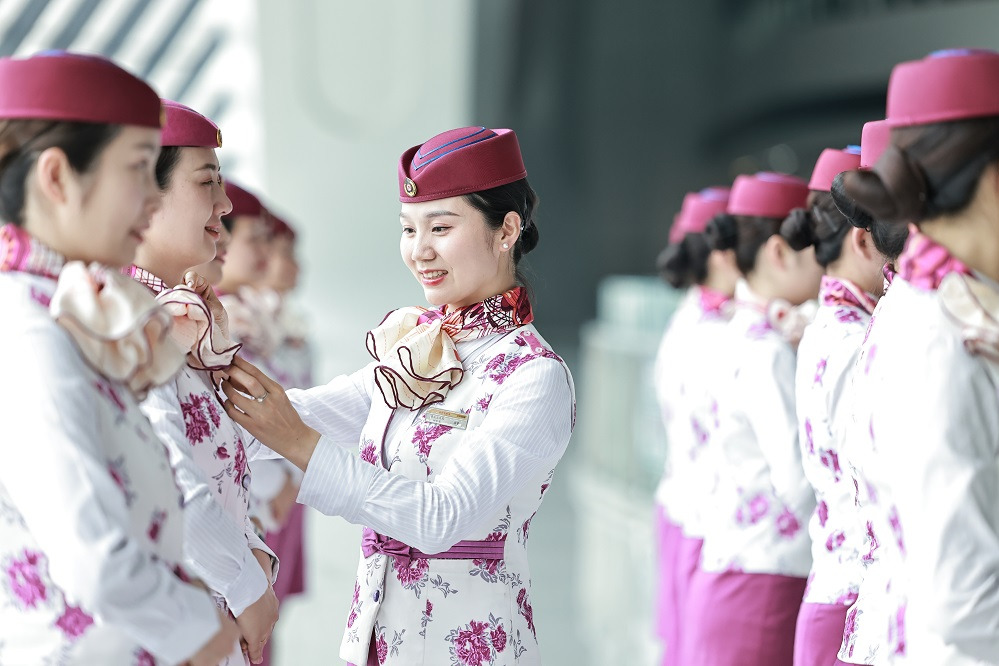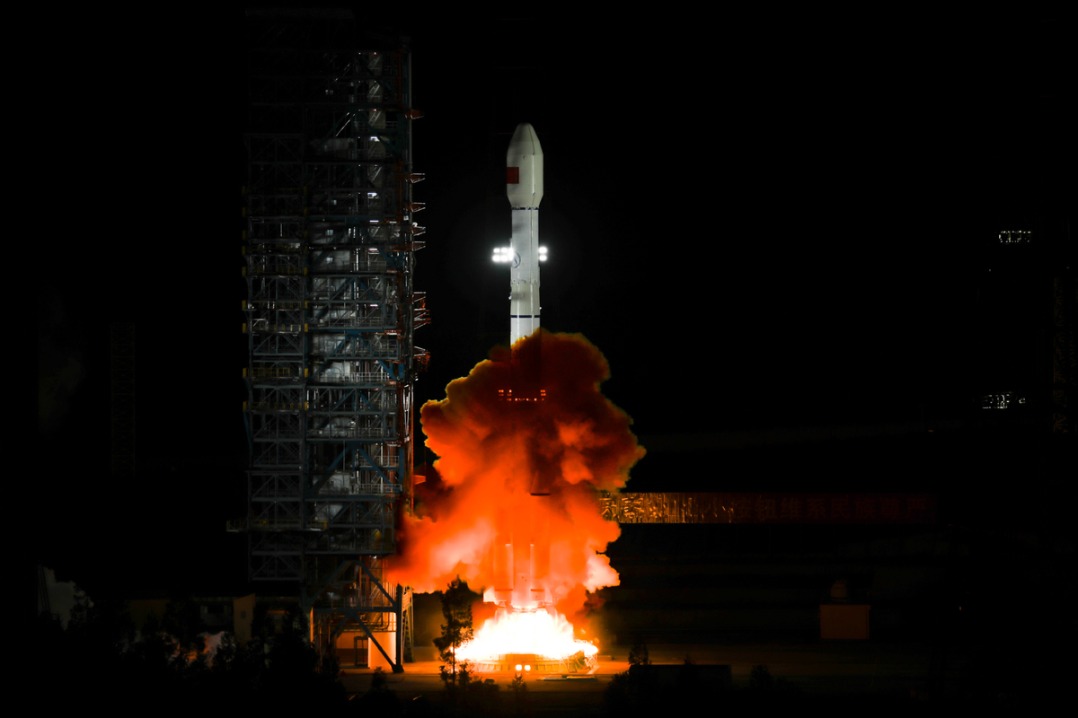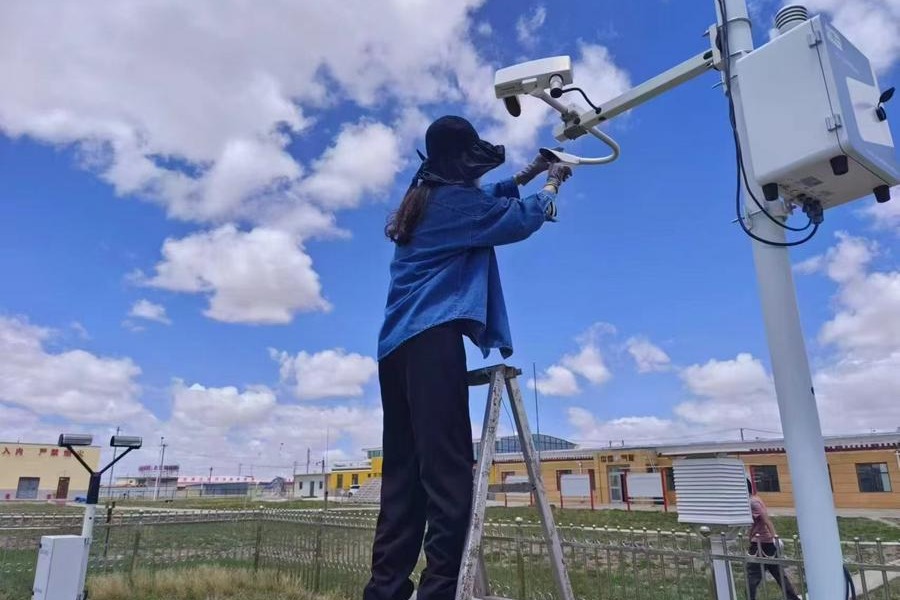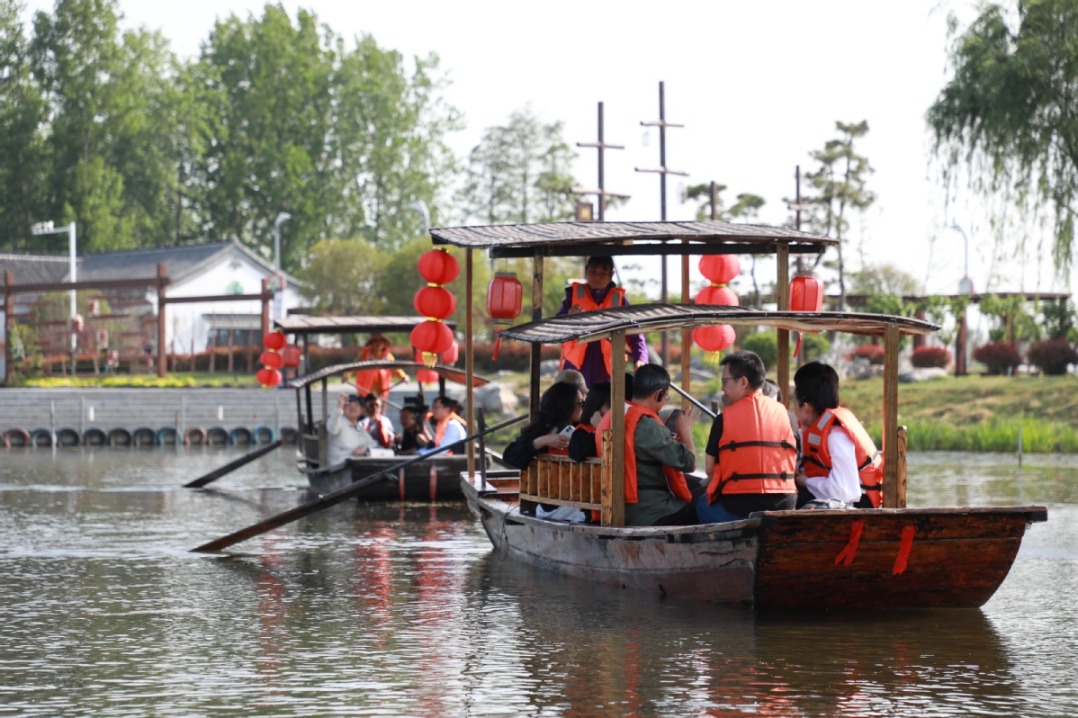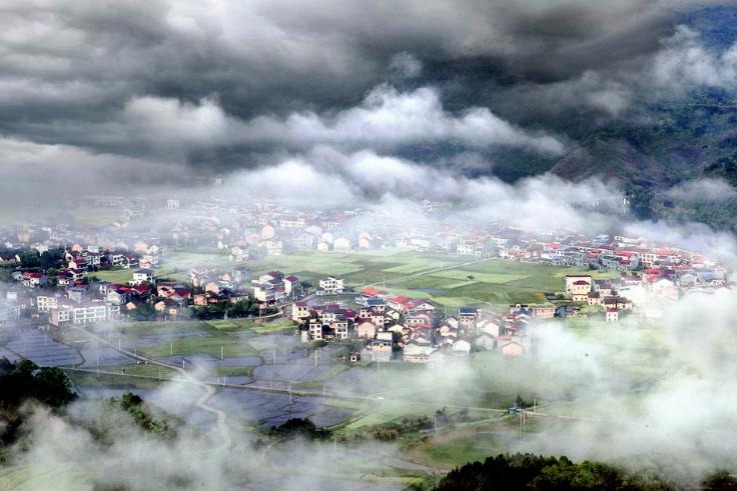Cooperation projects help build livelihoods in Kenya

As a quantity surveyor, Daniel Kigen Rutto has spent the past four years helping upgrade the Sagana-Marua highway, one of Kenya's most ambitious road projects and a critical artery designed to speed up commerce and connect rural communities to the economic heart of the nation.
For the 30-year-old, the project's meaning stretches far beyond the spreadsheets and cost tallies he keeps each day. "Every time I see a farmer's truck rushing to the market without getting stuck for hours, I feel proud," he said. "We are not just building a road; we are building livelihoods."
Since the upgrading of the highway started, the travel time has decreased from more than two hours to less than two hours. For Kenya's farmers, who grow the fruits and vegetables that line the markets of Nairobi, the capital city, this reduced time can mean the difference between the survival of their businesses and the loss of an entire harvest.
The Sagana-Marua highway expansion, undertaken by China Wu Yi, a construction and engineering company, is among the dozens of infrastructure projects funded or built with Chinese support across Kenya. Together, they are physical markers of Beijing's growing cooperation on the African continent.
The relationship was back under the spotlight as Kenyan President William Ruto wrapped up a five-day state visit to China on Saturday. During the visit, President Xi Jinping and Ruto witnessed the signing of 20 bilateral cooperation agreements covering the Belt and Road Initiative, advanced technology and public welfare projects.
Watching the news at his home in Nairobi, Rutto, the surveyor, said he could hardly hide his enthusiasm. "I don't remember the last time I smiled at the TV," he said.
Chinese investment has created jobs and chipped away at Kenya's stubbornly high unemployment rate, he said, adding that when the new memorandums of understanding are implemented, the rate would decline further.
On Thursday, Xi assured his Kenyan counterpart that China's supersized market is always open to high-quality Kenyan products, and China encourages more capable Chinese enterprises to invest and start businesses in the East African country.
China is Kenya's largest trading partner and the biggest source of its imports, while Kenya is China's biggest trading partner in East Africa. According to the General Administration of Customs, trade between the two nations grew 8.8 percent year-on-year to reach $8.82 billion in 2024.
In a social media post, Ruto said that the "Kenya-China strategic partnership is permanent, people-centered, and continues to deliver practical, tangible, impactful and sustainable win-win situations".
"Our Chinese partners will invest significant resources to improve our road infrastructure, education, health, agriculture, blue economy, green energy, and information and communications technology sectors, among others. These commitments are further evidence of China's resolute support to our efforts to grow our economy, create jobs for our youth, and unlock the untapped resources of our great nation."
Ruto's itinerary included a trip to Ningde, Fujian province, where he visited the company premises of Chinese battery giant Contemporary Amperex Technology, or CATL, and a poverty alleviation exhibition hall.
Ningde is where Xi spearheaded wide-ranging efforts to fight poverty during his tenure as the city's top official between 1988 and 1990.
The Kenyan leader lauded the foresight and persistence of Ningde's present and past leaders for "pulling the hilly metropolis from abject poverty within one generation".
"We endeavor to apply some of these valuable lessons from Ningde, and China in general, to the plan on poverty eradication efforts in Kenya," Ruto said.
According to a joint statement signed by the two heads of state on creating an inspiring example in the all-weather China-Africa community with a shared future for the new era, China will support its enterprises in collaborating with Kenya to develop local healthcare industries, thereby contributing to the better health and well-being of the Kenyan people.
Analysts said that Ruto's China visit offered a crucial opportunity for the East African country to not only reinforce its economic agenda, but also play a more prominent role in South-South cooperation.
Gordon Kachola, a Kenyan foreign policy analyst, said that Ruto's visit to China was instrumental, because it reaffirmed the two countries' commitment to drive cooperation under the BRI.
"There is no doubt that Kenya is a key BRI partner in Africa, having already benefited from major Chinese investments on roads, railways and energy," Kachola said, noting that the visit served as an opportunity for Ruto to propose ways in which Kenya can implement the outcomes of the Forum on China-Africa Cooperation Summit held in Beijing last year.
"With the expanded cooperation between the two nations, Kenyans expect Ruto to use the country's strategic position to unlock opportunities in digital trade, agriculture, the blue economy, health, environmental conservation, education, and the creative economy, especially for youth and women," he added.
Aly Khan Satchu, a leading investment banker in Kenya, said that Ruto's visit served as a framework to boost bilateral projects, particularly under the BRI.The visit also came amid shifting global geopolitical dynamics and signals a renewed push to reshape the tenets of Kenya-China cooperation, he said.
The Kenyan president's visit was an indication that China and Africa can work together to formulate trade arrangements, which in turn can help them minimize the effects of global trade uncertainties such as the United States' tariff hikes, Satchu said.
Rutto, the surveyor, said that China is like a big brother and a mentor to Kenya.
"From infrastructure to imports, the list of things that China has helped and is still helping Kenya achieve is endless. I and many other Kenyans are hoping that the partnership will continue as long as possible," he added.

















